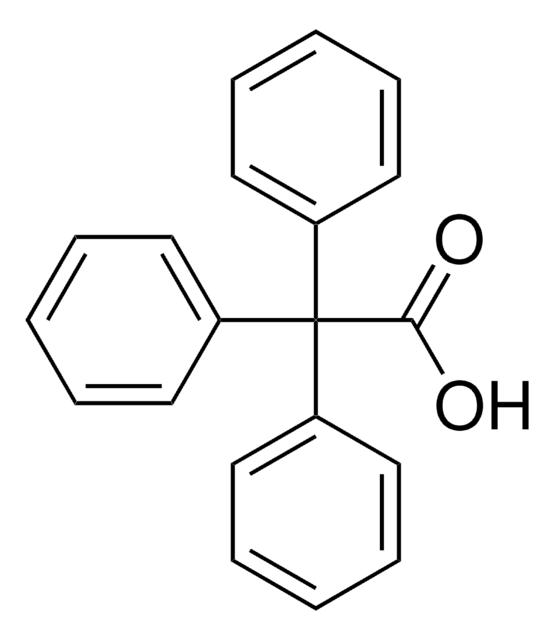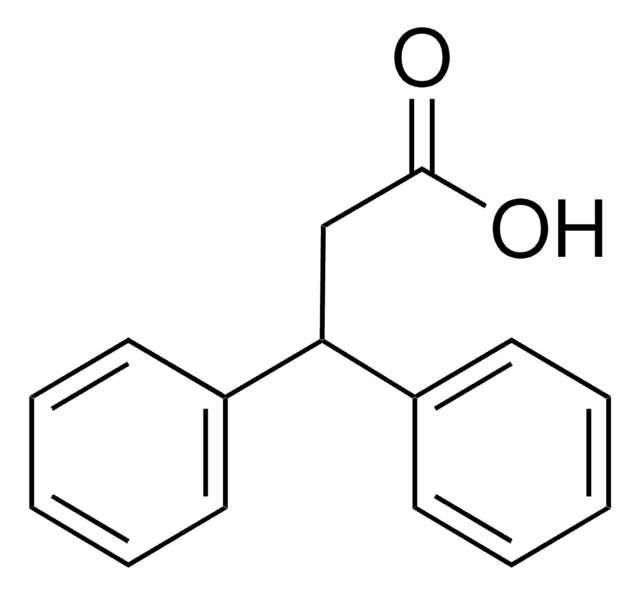D204307
Diphenylacetic acid
99%
Synonym(s):
α,α-Diphenylacetic acid, α-Phenylbenzeneacetic acid, 2,2-Diphenylacetic acid, Diphenylethanoic acid
About This Item
Recommended Products
Quality Level
Assay
99%
form
powder
mp
146-149 °C
147-149 °C (lit.)
SMILES string
OC(=O)C(c1ccccc1)c2ccccc2
InChI
1S/C14H12O2/c15-14(16)13(11-7-3-1-4-8-11)12-9-5-2-6-10-12/h1-10,13H,(H,15,16)
InChI key
PYHXGXCGESYPCW-UHFFFAOYSA-N
Looking for similar products? Visit Product Comparison Guide
Application
It can also be used as:
- An additive in the ortho-arylation of 1-phenyl-β-carbolines using various aryl halides in the presence of ruthenium catalyst.
- A catalyst to synthesize 2-allyl-3-oxazolin-5-one derivatives via Rh-catalyzed coupling reaction of azlactones and alkynes followed by aza-Cope rearrangement.
Signal Word
Warning
Hazard Statements
Precautionary Statements
Hazard Classifications
Acute Tox. 4 Oral - Aquatic Chronic 3 - Eye Irrit. 2
Storage Class Code
11 - Combustible Solids
WGK
WGK 2
Flash Point(F)
383.5 °F - closed cup
Flash Point(C)
195.3 °C - closed cup
Personal Protective Equipment
Certificates of Analysis (COA)
Search for Certificates of Analysis (COA) by entering the products Lot/Batch Number. Lot and Batch Numbers can be found on a product’s label following the words ‘Lot’ or ‘Batch’.
Already Own This Product?
Find documentation for the products that you have recently purchased in the Document Library.
Customers Also Viewed
Our team of scientists has experience in all areas of research including Life Science, Material Science, Chemical Synthesis, Chromatography, Analytical and many others.
Contact Technical Service












